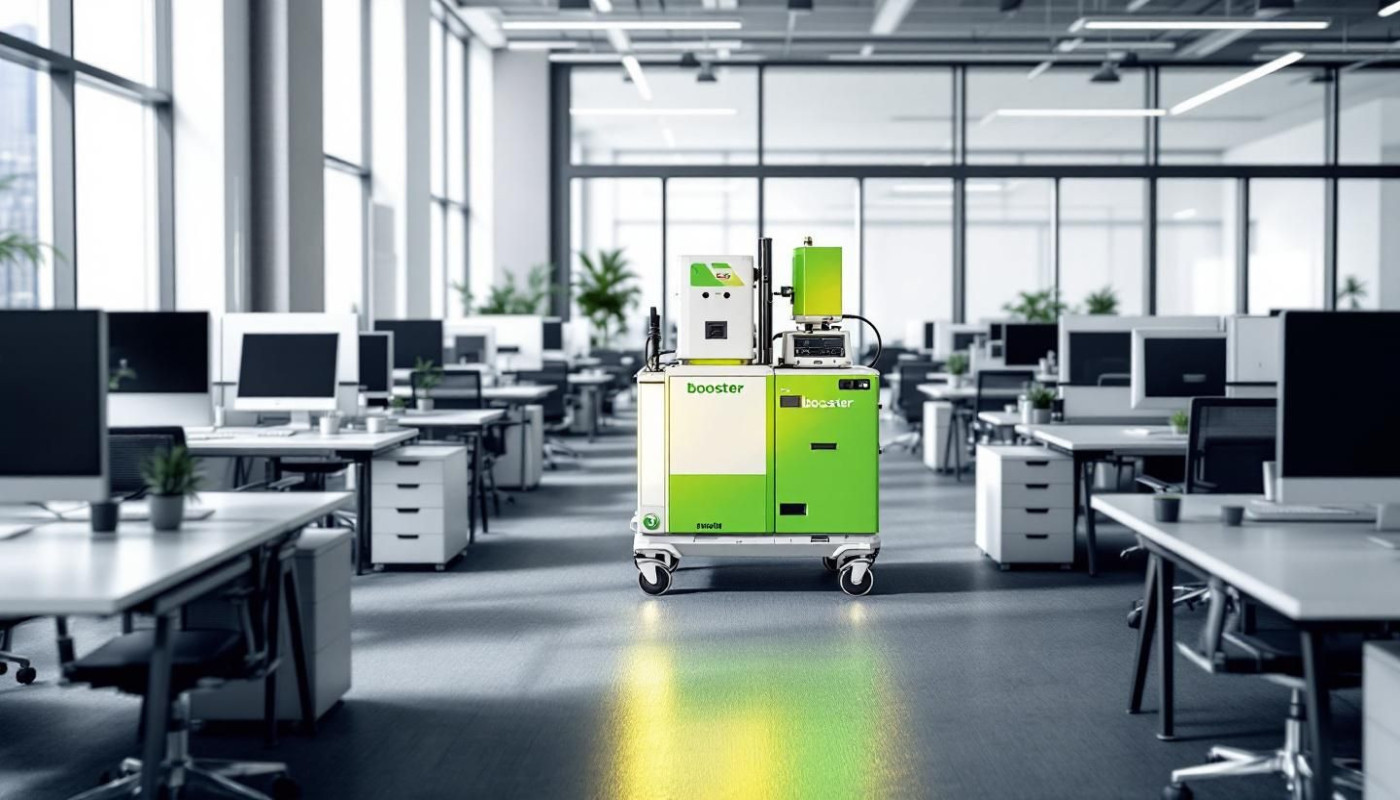Table of contents
Embark on a journey through the labyrinth of modern technology, where the quantum computing revolution is reshaping the very fabric of computation and information processing. With the potential to solve complex problems that are currently beyond the reach of classical computers, quantum computing stands at the precipice of transforming a multitude of industries, from cryptography to pharmaceuticals. This exploration is not just about understanding the mechanics of quantum bits but also about grasping the profound implications they bring to the table. The promise of exponential speedup in computing power carries with it a wave of innovation and challenges that both intimidate and excite the scientific community. As we peel back the layers of quantum mechanics and computer science, a new realm of possibilities emerges. This piece aims to demystify the enigmatic world of quantum computing, inviting readers to grasp the significance of this groundbreaking technology and its potential to revolutionize our world. Prepare to delve into the heart of this technological marvel and discover how it stands to redefine the future of computing.
Decoding Quantum Computing
At the heart of the quantum computing revolution lies a fundamental shift from the principles of classical computing to a landscape governed by the rules of quantum mechanics. Unlike the binary bits of classical computing, which process information in definite states of 0s or 1s, quantum computing introduces the quantum bit, or qubit. Qubits possess the extraordinary property of superposition, allowing them to exist in multiple states simultaneously. This unique feature empowers quantum computers to conduct certain types of calculations at a pace that dwarfs traditional computing capabilities—a phenomenon often referred to as the quantum advantage. In this realm, the phenomenon of entanglement further distinguishes quantum computing. When qubits become entangled, the state of one qubit can instantaneously influence another, regardless of the distance separating them. This interconnection is not just a theoretical curiosity; it's a pivotal aspect that quantum algorithms leverage for unparalleled processing power. For a lay reader seeking illumination in this complex field, one could liken entangled qubits to a perfectly choreographed dance troupe, moving in harmony to execute intricate routines that would be impossible for a single dancer—or in this case, a single classical bit. The synergy of these quantum properties heralds a new era of computational might, offering breakthrough potential in fields ranging from cryptography to drug discovery.
The Quantum Leap in Processing Power
Quantum computing represents an extraordinary shift in the landscape of data processing, offering capabilities that redefine the limitations of classical computation. The hallmark of this pioneering technology is 'quantum speedup,' a term that captures the essence of the quantum realm's advantage: the ability to perform certain calculations at velocities that dwarf those of even the most advanced supercomputers. For example, 'intractable problems'—challenges so complex that they are beyond the reach of traditional computing—may yield to the power of quantum algorithms. Quantum computation thrives on these complexities, harnessing the phenomena of superposition and entanglement to explore a multitude of solutions simultaneously.
The concept of 'quantum supremacy' is a milestone where quantum computers perform a computation that is prohibitively difficult for any classical computer. This represents a fundamental shift in processing power, delineating a future where problems in cryptography, weather forecasting, and materials science are approached with unprecedented efficiency. Quantum algorithms, such as Shor's algorithm for factoring large numbers, demonstrate this potential by pointing towards solutions for tasks that would take millennia on conventional machines. As the field progresses, the implications of quantum computation on computational tasks promise to catalyze a revolution across science and industry alike.
Challenges in Quantum Computing
As the field of quantum computing burgeons, the complexities inherent in its development and practical application are becoming increasingly evident. One of the foremost obstacles is quantum error correction, a process vital for the reliability and feasibility of quantum calculations. Conventional computers use bits to process information, with straightforward error-correcting codes, whereas quantum computers operate on qubits, which can exist in multiple states simultaneously. This makes error correction significantly more complex, requiring novel approaches and algorithms to ensure that quantum information remains accurate and useful.
Another significant hurdle is quantum decoherence, which refers to the loss of quantum coherence. In a coherent quantum system, the particles are in a delicate state of superposition, enabling them to perform multiple calculations at once. Maintaining this state requires incredibly precise conditions, as the slightest interference from external environments can cause the system to decohere, leading to loss of information and computing errors. This challenge is intertwined with the physical requirements for maintaining quantum states, which involve extreme cooling and isolation from any form of disturbance, a daunting task given the unpredictable nature of quantum particles.
The impact of these technical hurdles on the advancement of quantum technology is substantial. Quantum challenges such as error correction and decoherence directly dictate the pace of quantum development. They not only slow the progress but also raise questions about the scalability of quantum computers. Overcoming these obstacles is pivotal for the transition from experimental setups in laboratories to robust, reliable quantum computing systems that can outperform classical computers in real-world situations. The ongoing quest to solve these problems fuels the work of quantum engineers and physicists specializing in quantum mechanics, who are at the forefront of bringing the quantum computing revolution to fruition.
The Impact of Quantum Computing on Industries
Quantum computing is on the brink of transforming a multitude of sectors with its unparalleled processing power, which promises to solve complex problems that are currently beyond the reach of classical computers. In the realm of drug discovery, this nascent technology offers the potential to accelerate the development of new medicines by precisely modeling molecular interactions at an atomic level, a task that is exceptionally resource-intensive with today's technology. Similarly, optimization problems in logistics, encompassing everything from supply chain management to route planning, stand to benefit from quantum computing's capacity to evaluate countless variables and scenarios rapidly, thereby enhancing efficiency and reducing operational costs.
The field of cryptography is set to undergo a seismic shift with the advent of quantum computing. The very foundation of secure digital communication rests upon cryptographic algorithms that could be easily unraveled by the immense power of quantum processors. This pressing threat has spurred the development of quantum-resistant encryption methodologies, which are designed to be secure against the sophisticated tactics of quantum computers. The adoption of quantum-safe strategies is not merely advisable but imperative for safeguarding sensitive information in the future landscape of cybersecurity.
The quantum impact on these industries signifies not just incremental progress but a comprehensive overhaul of capabilities, redefining what is possible within each domain. As industry analysts and professionals with deep expertise in applied quantum computing continue to explore these applications, it is clear that quantum technology holds the key to unlocking a new era of innovation and problem-solving.
Preparing for the Quantum Future
As we stand on the precipice of the quantum computing revolution, it is paramount that individuals and organizations take proactive measures to ensure "quantum readiness." A critical aspect of this preparation is the emphasis on quantum education. The complexity of quantum technologies requires a workforce equipped with a specialized skill set. It is vital for educational institutions to develop curricula that address this need, fostering an environment where future scientists and engineers can thrive in quantum mechanics and computing.
In parallel, workforce training programs must be established to re-skill current professionals, enabling them to adapt to the new quantum era. The workforce of tomorrow needs to be agile, with a strong understanding of quantum principles to drive innovation and maintain competitive advantage.
Another significant consideration is the development of robust regulatory frameworks. These frameworks will guide the ethical use, security, and standardization of quantum technologies, ensuring they benefit society as a whole. It is vital for policy makers to craft legislation that addresses these unique challenges and opportunities.
To truly capitalize on the potential of quantum computing, quantum investment in research and development must be made a priority. Early funding in the field can lead to groundbreaking discoveries and secure a leadership position in the global market. Additionally, building resilient and advanced quantum infrastructure is imperative for realizing the full potential of quantum technologies. Investment in this area will facilitate innovation, supporting a wide array of applications from secure communication networks to complex computational tasks.
The integration of quantum computing into the fabric of society will redefine industries and national security strategies. Hence, taking concerted efforts today to foster education, refine training, establish regulations, and invest in research and infrastructure will set the stage for a prosperous quantum future. The time to act is now; society must embrace the quantum computing revolution with informed enthusiasm and strategic foresight.
On the same subject











